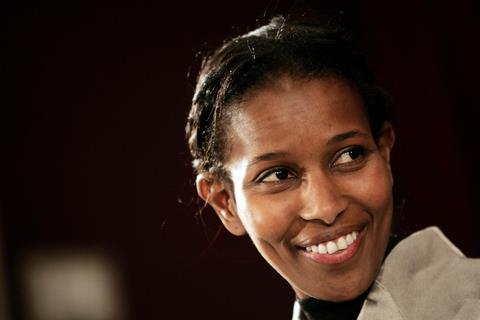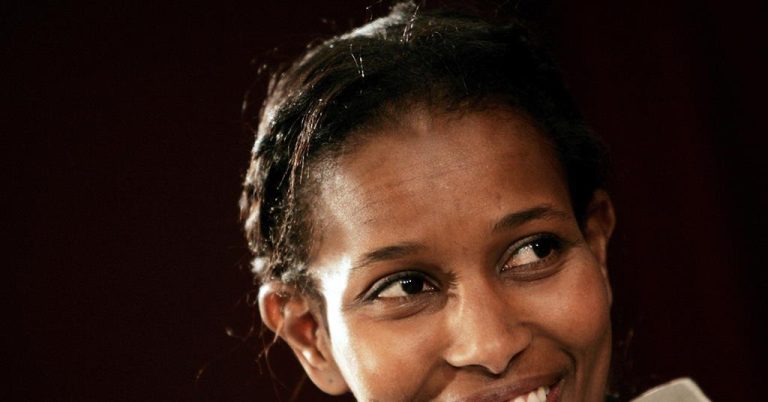
Last weekend I was with friends in Oxford and we walked along Addison’s Walk, a pretty tree-lined path that runs alongside the River Cherwell. It is a walk steeped in spiritual history as it was during an evening walk here in 1931 that CS Lewis had an in-depth conversation with his friends JRR Tolkien and Hugo Dyson which helped him take a big step in before towards Christianity.
Lewis had become a believer in God two years earlier, after a decades-long journey from atheism. He had been motivated in part by the realization that everything he loved – art, music, beauty, culture, truth – made no sense within the framework of atheism. A growing awareness that he was not so much seeking God as being pursued led to this dramatic moment: “During the Trinity term of 1929, I gave in and admitted that God was God, I knelt and prayed: perhaps that night the most reluctant convert in all England,” he wrote in Surprised by joy.
It shows how well Christians have canonized St. Lewis of Oxford that we often cite this story with enthusiasm (“Look how the great atheist fell!”) without understanding that Lewis’s initial conversion is a bit tasteless. It took a subsequent conversation with Tolkien and Dyson to help him complete his spiritual journey. Lewis wrote: “I have just gone from believing in God to definitely believing in Christ – in Christianity… My long nightly conversation with Dyson and Tolkien had a lot to do with it. »
I was reminded of CS Lewis’s unconventional and circuitous path to faith when I read with shock the recent announcement that Ayaan Hirsi Ali has become a Christian.
Ali is a public intellectual, author, and women’s rights activist, but she is also known as a devout atheist, a former Muslim, and later a fierce critic of Islam, with her criticism motivated by hatred and violence which she saw both in her direct experiences. in the fundamental texts of Islam, as detailed in his book, Unfaithful.
Ali was born in Somalia but grew up in Nairobi in a Muslim family. During his adolescence, the Muslim Brotherhood infiltrated his community. Until then, for Ali, religion was just a dead ritual. “The preachers of the Muslim Brotherhood changed that. They articulated a direction: the right path. A goal: to work for admission to Allah’s paradise after death…The most striking quality of the Muslim Brotherhood was its ability to transformed me and my fellow teenagers from passive believers to activists, almost overnight. We didn’t just say things or pray for things: we did things.”
But then came the Twin Towers attacks, and as Ali watched her fellow Muslims celebrate 9/11, she began to question everything she knew. And while she was reading widely, she came across atheist Bertrand Russell’s famous lecture, “Why I Am Not a Christian.” He affirmed his intuition that religion was simply driven by fear and so it was with a sense of joy that it threw off the shackles of Islam.
Ali became not only an atheist, but also a fierce critic of Islam, her merciless attacks on her former faith causing her to receive death threats and have to spend time in hiding. (Dutch filmmaker Theo Van Gogh who collaborated with her on the film Submission was brutally murdered and a letter threatening Ali pinned to his corpse with a knife).
But despite the public notoriety she was gaining and the excitement of associating with other new atheists, including Richard Dawkins and Christopher Hitchens, something was wrong and over time, Ali also began to doubt her atheism. At first, she feared that atheism could not provide the West with the resources needed to meet its myriad cultural and civilizational challenges, but then, more personally, because atheism left her feeling completely empty: ” I also turned to Christianity because I ultimately found life without any spiritual comfort to be unbearable – in fact almost self-destructive. Atheism has failed to answer a simple question: what is the meaning and purpose of life.
Hence Ali’s astonishing announcement that she has become a Christian, almost as surprising as if Richard Dawkins had entered the priesthood. Social media lit up like a Christmas tree: disappointed atheists accused her of betrayal; while Christians – well, some rejoiced, but others called for caution: “Wait a moment, isn’t his conversion a little… bland?” It has been noted that in his conversion story, the name of Jesus is never mentioned, much less the cross. I understand and have some sympathy with this hesitation, particularly because I worry about celebrity conversions, but let me also make a few observations.
What Ali needs from Christians is not theological bricks and mortar, but love, support and encouragement as she explores who Jesus is.
First, Ali’s conversion did not happen in isolation, but against a backdrop of changing intellectual climate. More and more public intellectuals are beginning to speak positively about faith, a story well told in Justin Brierley’s recent book The surprising revival of belief in God. Let’s make sure we answer the questions of today’s spiritual seekers, not fight yesterday’s windmills.
Second, remember that the path to faith is often long and winding.. Is Ali a full-blooded Christian? Clearly no. But neither did CS Lewis during his most reluctant conversion phase. Like Lewis, Ali still has a way to go, but I’m encouraged that she realizes this, as she writes: “Of course, I still have a lot to learn about Christianity. I discover a little more at church every Sunday. But I have recognized, in my long journey through a wilderness of fear and self-doubt, that there is a better way to deal with the challenges of existence than Islam or religion. disbelief had to offer.
Third, we should think about the cost of discipleship, which is high for those who come to Christianity from Islam, let alone to Islam via New Atheism.. Ali continues to face death threats from Islamists and online attacks from angry atheists. Publicly announcing his conversion took a lot of courage. Many of us have had much less expensive journeys to Christ, so perhaps we would do well to exercise a little humility. What Ali needs from Christians is not theological bricks and mortar, but love, support and encouragement as she explores who Jesus is.
Finally, don’t forget to pray. Pray for our atheist friends. Pray for our culture, in its chaos and mayhem. And pray for those, like Ali, who have discovered that in the absence of Christianity, many of the beautiful things of our culture that had flourished in the soil of the Gospel begin to wither.
In CS Lewis’s journey from reluctant convert to committed Christian, many Christian friends, such as Tolkien, Dyson, and others, had a significant influence. My prayer for Ayaan Hirsi Ali is that God will also bring strong Christian friends into her life who can celebrate with her the steps she has taken, but also help encourage her on the rest of the journey to Jesus.


